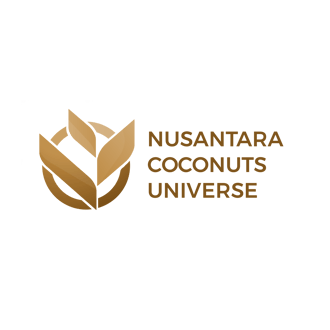Why Indonesia is the Most Potential Region on the Equator to Produce the Best Coconuts in the World
Indonesia is recognized as one of the most potential regions along the equator for producing the best coconuts in the world. This is due to a combination of natural, geographical, and cultural factors that create ideal conditions for coconut cultivation. Below are the key reasons: 1. Optimal Tropical Climate - Indonesia's location on the equator provides a tropical climate with consistent temperatures (25-30°C), high humidity, and abundant rainfall throughout the year. These conditions are perfect for coconut trees, which thrive in warm, humid environments. - The evenly distributed rainfall ensures that coconut trees receive adequate water without the need for extensive irrigation. 2. Vast Archipelago with Fertile Soil - As the largest archipelagic country in the world, Indonesia has over 17,000 islands, many of which are covered with fertile volcanic soil. This type of soil is rich in nutrients, making it highly suitable for coconut cultivation. - Coastal areas, where coconuts are predominantly grown, have sandy and well-drained soils that are ideal for coconut tree roots. 3. Biodiversity and Genetic Variety - Indonesia is home to a wide variety of coconut species, including both traditional and hybrid varieties. This biodiversity allows for the cultivation of coconuts with unique characteristics, such as high oil content, sweet water, or thick flesh, catering to diverse market needs. - Local varieties like Kelapa Genjah (dwarf coconut) and Kelapa Dalam (tall coconut) are well-adapted to Indonesia's environment and are highly productive. 4. Long History of Coconut Cultivation - Coconuts have been an integral part of Indonesian culture and agriculture for centuries. Traditional knowledge and practices in coconut farming have been passed down through generations, ensuring sustainable and efficient cultivation methods. - Coconut trees are often referred to as the "Tree of Life" in Indonesia due to their multiple uses, from food and beverages to building materials and handicrafts. --- 5. Large-Scale Production and Export Potential - Indonesia is the world's largest producer of coconuts, contributing significantly to the global supply. In 2022, Indonesia produced over 17 million tons of coconuts, accounting for approximately 30% of global production. - The country's strategic location along major international shipping routes makes it a key exporter of coconut products, such as coconut oil, copra, and desiccated coconut, to markets worldwide. --- 6. Government and Industry Support - The Indonesian government has implemented policies to support coconut farmers, including providing subsidies, training, and access to modern farming technologies. - There is also a growing focus on **value-added coconut products**, such as virgin coconut oil (VCO), coconut sugar, and coconut-based biofuels, which enhance the economic potential of the industry. --- 7. Sustainability and Environmental Benefits - Coconut trees play a vital role in environmental conservation. They help prevent soil erosion in coastal areas, act as windbreakers, and contribute to carbon sequestration. - The coconut industry in Indonesia is increasingly adopting sustainable practices, such as organic farming and zero-waste processing, to meet global demand for eco-friendly products. --- 8. Cultural and Economic Importance - Coconuts are deeply embedded in Indonesian culture, used in traditional ceremonies, cuisines, and daily life. This cultural significance drives continuous cultivation and innovation. - The coconut industry provides livelihoods for millions of Indonesians, from smallholder farmers to workers in processing industries, making it a critical component of the rural economy. --- Conclusion Indonesia's unique combination of ideal climate, fertile soil, biodiversity, and cultural heritage makes it the most potential region on the equator for producing the best coconuts in the world. With ongoing support from the government and industry, Indonesia is well-positioned to maintain its leadership in the global coconut market while promoting sustainable and environmentally friendly practices.


My post content
